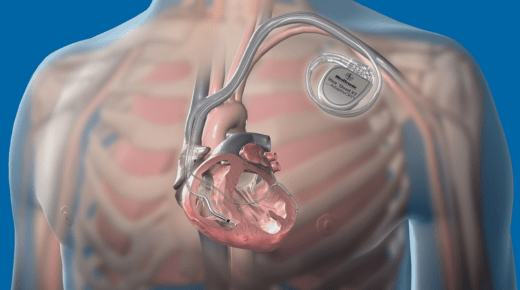Understanding Transcutaneous Electrical Nerve Stimulation (TENS)
Transcutaneous Electrical Nerve Stimulation (TENS) is a non-invasive therapy that uses electrical currents to alleviate pain by stimulating nerves through the skin.
Mechanism of Action
TENS units deliver low-voltage electrical impulses to targeted areas of the body, blocking pain signals from reaching the brain and promoting the release of endorphins, the body’s natural painkillers.
Safety of TENS Therapy
TENS therapy is generally considered safe when used as directed, with few reported adverse effects such as skin irritation or discomfort at the electrode sites.
Potential Risks
While TENS therapy is unlikely to directly cause atrial fibrillation (AFib), there are theoretical concerns that electrical stimulation near the chest area could potentially interfere with cardiac rhythm in susceptible individuals.
Atrial Fibrillation Explained
Atrial fibrillation is a common cardiac arrhythmia characterized by irregular heartbeats originating in the atria, leading to rapid and chaotic heart rhythm.
Risk Factors for AFib
Risk factors for AFib include advanced age, hypertension, coronary artery disease, heart failure, diabetes, obesity, and underlying structural heart abnormalities.
Electrical Interference
In theory, electrical stimulation from a TENS unit could potentially interfere with the heart’s electrical conduction system, triggering or exacerbating arrhythmias such as AFib in individuals with pre-existing cardiac conditions.
Case Reports
There have been isolated case reports of TENS therapy associated with cardiac arrhythmias, including AFib, particularly when electrodes are placed near the chest or heart region.
Precautions
To minimize the risk of adverse effects, individuals with known cardiac conditions or risk factors for arrhythmias should exercise caution when using TENS units, and electrode placement should avoid the chest area.
Consultation with Healthcare Providers
Patients with cardiovascular concerns should consult with their healthcare providers before initiating TENS therapy to assess potential risks and benefits and determine the safest approach to pain management.
Monitoring and Surveillance
Close monitoring is recommended during TENS therapy, especially in high-risk individuals, to promptly identify any adverse reactions or changes in cardiac rhythm and intervene as necessary.
Individualized Risk Assessment
The decision to use TENS therapy should be based on individualized risk assessment, taking into account the patient’s medical history, current cardiac status, and overall health.
Alternative Pain Management Options
For patients with cardiovascular concerns or contraindications to TENS therapy, alternative pain management modalities such as pharmacotherapy, physical therapy, acupuncture, or relaxation techniques may be considered.
Clinical Guidelines and Recommendations
Healthcare providers should adhere to established clinical guidelines and recommendations when prescribing TENS therapy, ensuring appropriate patient selection, electrode placement, and monitoring protocols.
Patient Education
Educating patients about the potential risks and benefits of TENS therapy, as well as signs and symptoms of cardiac complications, empowers them to make informed decisions and seek timely medical attention if needed.
Research and Evidence
Further research is needed to better understand the potential cardiovascular effects of TENS therapy and clarify its safety profile, particularly in patients with underlying cardiac conditions.
Conclusion: Balancing Benefits and Risks
In conclusion, while TENS therapy is generally considered safe for pain management, there are theoretical concerns about its potential to cause or exacerbate cardiac arrhythmias such as atrial fibrillation, particularly in susceptible individuals. Healthcare providers should carefully weigh the benefits and risks of TENS therapy and take appropriate precautions to ensure patient safety and well-being.




